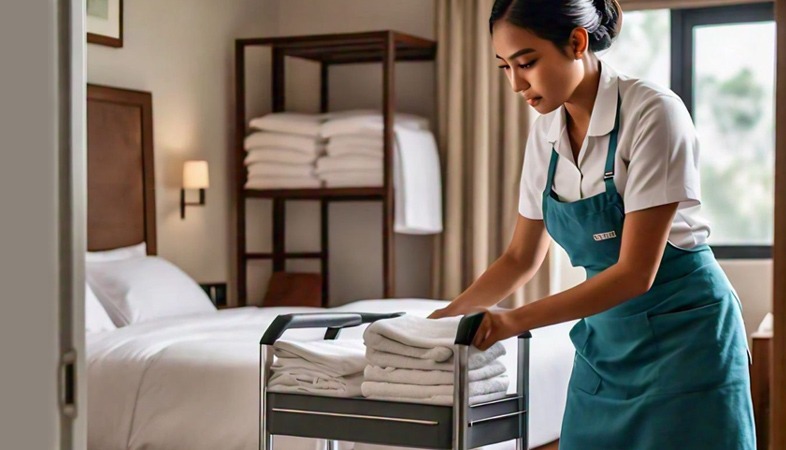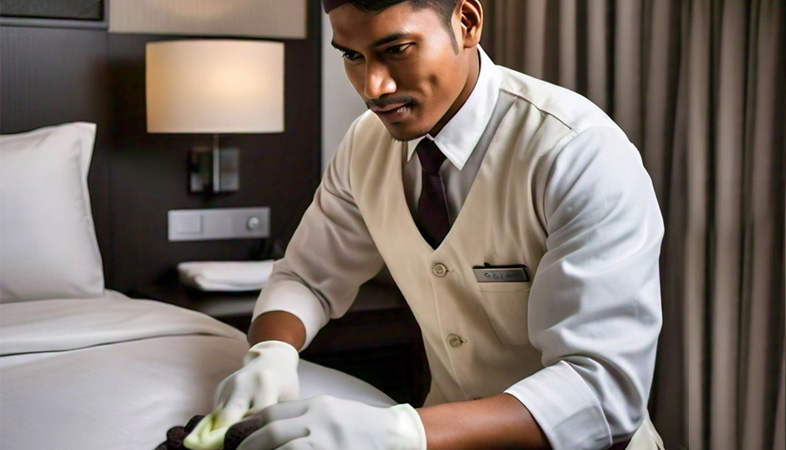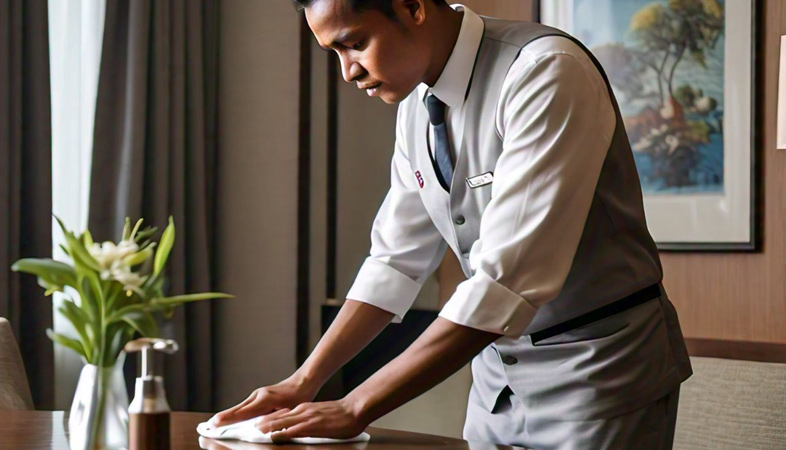Housekeeping Etiquette: Respectful Room Entry and Guest Interaction
Understanding the nuances of respectful behavior not only enhances the guest experience but also fosters a culture of professionalism within the hotel.
In the hospitality industry, housekeeping staff plays a
pivotal role in ensuring guest satisfaction and comfort. One of the critical
aspects of this role is adhering to proper etiquette when entering guest rooms
and interacting with guests. Understanding the nuances of respectful behavior
not only enhances the guest experience but also fosters a culture of
professionalism within the hotel. Here’s a look at essential housekeeping
etiquette that emphasizes respectful room entry and meaningful guest
interaction.
First and foremost, communication is key in housekeeping etiquette. Before entering a guest's room, it is crucial to knock and announce yourself. A simple knock followed by a polite introduction, such as “Housekeeping!” provides guests with the opportunity to prepare for your entry. This practice respects their privacy and allows them to respond if they need a moment. If there is no response after knocking, it is advisable to wait a moment and knock again, ensuring that you do not interrupt any private activities.
Once inside, it is essential to maintain a professional demeanor. Housekeeping staff should be aware that they are entering a personal space and should conduct themselves accordingly. Avoid making any comments about the room’s contents or personal belongings, as this can be perceived as intrusive. Instead, focus on the task at hand—cleaning and refreshing the space while respecting the guest’s privacy. It’s important to remember that even small comments about a guest's possessions can make them uncomfortable, so discretion should always be exercised.
Another critical aspect of respectful room entry is maintaining cleanliness and order. Housekeepers should ensure they are tidy in their appearance and keep their cleaning supplies organized. When entering a guest’s room, it’s courteous to leave the door open if appropriate, allowing for airflow and minimizing any unpleasant odors. Moreover, staff should be mindful of where they place cleaning equipment and materials, ensuring they do not obstruct pathways or create hazards within the room.
Respecting the guest’s belongings extends beyond comments; it also includes handling their items with care. If housekeeping needs to move personal items to clean the room, it should be done respectfully and thoughtfully. Always return items to their original location after cleaning. If something is out of place or if any damage is observed, it is best to report it to the front desk rather than attempting to resolve it on your own. This approach maintains trust between the guest and the hotel staff.
Guest interaction is another vital component of housekeeping etiquette. When encountering guests in the hallway or within their rooms, it is courteous to greet them warmly. A friendly smile and a simple “Hello” or “Good morning” can make a significant difference in the guest experience. Engaging in light conversation can also enhance rapport, but it is important to gauge the guest’s willingness to interact. Some guests may prefer to keep interactions brief, while others may welcome a chat. Being attentive to their body language can provide cues on how much engagement they desire.
In addition to greetings, housekeeping staff should be attentive to guests’ needs. If a guest expresses a specific request or concern, such as needing extra towels or reporting a maintenance issue, it is essential to listen actively and respond promptly. Taking notes on any requests ensures that the information is communicated effectively to the appropriate departments, demonstrating a commitment to guest satisfaction.
Another critical aspect of housekeeping etiquette involves managing guest feedback. If a guest has a complaint or concern about their room, it is essential to remain calm and professional. Acknowledge their feelings and assure them that their concerns will be addressed promptly. If the issue requires immediate attention, the housekeeper should inform the front desk or management as soon as possible to facilitate a quick resolution. Handling feedback gracefully reflects positively on the hotel's commitment to service.
Finally, respecting guest privacy is paramount in housekeeping etiquette. If a “Do Not Disturb” sign is displayed on the door, housekeeping staff should respect this request and refrain from entering the room. It is crucial to be aware of any signs indicating the guest’s preferences, such as the presence of the sign or the request for cleaning at a specific time. By adhering to these preferences, housekeeping staff demonstrate their respect for the guest’s space and wishes.
Effective housekeeping etiquette involves a blend of communication, professionalism, and respect for guest privacy. By adhering to proper protocols when entering guest rooms and interacting with guests, housekeeping staff can significantly enhance the overall guest experience. A commitment to respectful behavior not only builds trust but also fosters a culture of excellence within the hospitality industry. By valuing each interaction and maintaining high standards of conduct, housekeeping staff play an integral role in creating a welcoming and memorable environment for all guests.
.png)





























